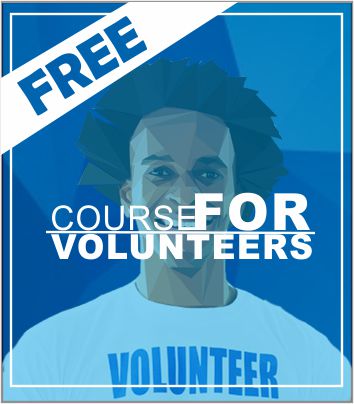Volunteers Learning
The course that you are going to start is intended to offer volunteers -or people who aspire to become one- the possibility to acquire, update, complete, or expand their specific knowledge and skills to work on social projects for the inclusion of migrants or refugees through formal and non-formal learning. We want to offer you the possibility of improving your capabilities of helping those who need it the most, and with that to build a fairer and equal society.
This course gathers contents and methodological strategies created through the experience of migrant persons themselves, and compiled over the years by social entities expert in the inclusion of segregated groups. Through the exchange of experiences and shared effort, we offer you a course that we believe is useful and effective to -regardless of whether you have previous experience working with migrants or not- make a difference in their and their neighbors’ lives. This course will also allow you to reinforce the “COURSE OF LITERACY FOR ADULTS”, continuing the training it proposed, with specific content and examples in the field of volunteering. This course, especially aimed at local adults (native or those who are already well established in Europe), is a tool capable of advancing in the curriculum defined in European Order ECD/651/2017 of July 5th, which regulates basic education and its curriculum for adults in the field of management of the Ministries of Education, Culture, and Sports from the different European countries.
Thus, the purpose of the course “SPECIFIC TRAINING AND INCLUSION” is to improve your abilities to carry out volunteer action in a social entity, but also to help you develop tools for the critical analysis of your own environment and encourage your direct participation in volunteering as a mechanism to build a more inclusive, diverse, and fair society.
Basic information
| Number of Didactic Units: | 9 |
| Number of downloadable materials: | 3 |
| Estimated number of hours to complete the course: | 215 |
| Number of pages of downloadable material: | 182 |
| Number of languages: | 3 |
Curriculum of the course
1: WHAT IS THIS COURSE FOR?
| 1.1. Objectives of this course |
| 1.2. Characteristics of this course |
| 1.3. Quality and certification systems of the course |
2: WHAT IS BEING A VOLUNTEER FOR INCLUSION?
| 2.1. Concepts and objectives of the volunteer work |
| 2.2. Principles of the volunteer action |
| 2.3. Motivations of the volunteer work |
| 2.4. What volunteerism is not |
| 2.5. Rights and duties of the volunteers |
| 2.6. Legal framework in volunteer law |
3: WHERE DOES A VOLUNTEER WORK?
| 3.1. Associationism |
| 3.2. Entities for volunteerism |
| 3.3. Fields of action of the volunteerism |
| 3.4. Basic operations of a volunteer person or entity |
4: HOW DOES A VOLUNTEER FOR INCLUSION WORK?
| 4.1. Profile of the beneficiaries |
| 4.2. Culture and customs of the countries of origin |
| 4.3. Prioritary situation and needs of the beneficiaries |
| 4.4. Basic procedures and paperwork for the obtention of refugee status or residence permit |
5: METHODOLOGY OF VOLUNTEER WORK
| 5.1. Work team – components |
| 5.2. Methodology of teamwork |
| 5.3. Coordination with professionals and other volunteers |
| 5.4. Interpersonal relationships |
| 5.5. Evaluation |
6: INCLUSIÓN THROUGH INTERCULTURAL MEDIATION
| 6.1. Intercultural mediation |
| 6.1.1. The figure of the mediator |
| 6.1.2. Functions of the mediator |
| 6.1.3. Professional competences of the mediator |
| 6.1.4. Code of behavior of the mediator |
| 6.2. Abilities and tools of the intercultural mediator |
| 6.3. Techniques in intercultural mediation |
| 6.3.1. Directed strategies |
| 6.3.2. Variables that can impact the strategies |
| 6.3.3. Steps in the mediation process |
| 6.3.4. The mediating intervention |
| 6.3.5. The effectiveness of mediation |
| 6.3.6. Techniques and tactics of mediation |
7: INCLUSION THROUGH LANGUAGE AND CULTURE
| 7.1. Projects for inclusion through the receiving language and culture |
| 7.2. Example of basic learning; how to teach minorized languages to migrant persons – catalan |
| 7.3. Basic arab learning for volunteers |
8: THE ERASMUS PLUS PROGRAMME
| 8.1. The Erasmus Plus Programme |
| 8.2. Basic notions for the management of projects |
| 8.3. The substantiation of Erasmus projects |
9. ANNEX






